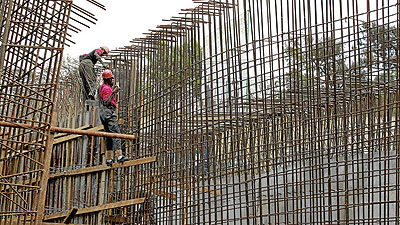Africa’s growth during the past decade marked the longest period of unbroken increases in per capita income since the 1960s, Mthuli Ncube, the African Development Bank (AfDB) vice-president, has said.


Africa’s growth during the past decade marked the longest period of unbroken increases in per capita income since the 1960s, Mthuli Ncube, the African Development Bank (AfDB) vice-president, has said.
"Demography on the continent has improved with higher rates of schooling and lower mortality rates. Export performance, domestic demand and investments have remained strong,” Ncube told reporters in Tunis ahead of next week’s AfDB Annual Meetings in Kigali.
He added that another major contributing fact was because 85 per cent of Africans live in countries that were relatively stable over the same period.
Ncube noted that Africa is presently making major strides in its development agenda so as to improve its economy and build a shared prosperity.
The Annual Meetings code named "The Africa we want” will bring together over 3,000 participants from the bank’s 78 member countries and global financial and development experts to share perspectives on the continent’s economic future for the next 50 years.
The meeting will also focus on Africa’s economic perspectives and its financial markets under the vision of the African Union’s Agenda 2063.
The 2014 meetings constitute a major milestone as they coincide with the celebrations of the institution’s 50th Anniversary.
However, many economic experts argue that for Africa to achieve its full potential, its development trajectory over the next 50 years must be firmly anchored in the aspirations of its people.
Ncube said it will take the efforts of every African man and woman, the young and old; and the contribution of both the rural and urban populations to take the continent to the next level in its growth agenda.
He said the next 50 years will be Africa’s turning point that will see a better continent that is self-reliant and peaceful. He challenged the private sector to play a leading role in securing Africa’s economic future.
"With an enabling environment, adequate infrastructure and policies that promote competition, entrepreneurship and job-creation, the private sector can support shared prosperity and offer real opportunities to all citizens, especially women and young adults. But, this transformation will demand considerable effort from African leaders and their people,” he noted.
The AfDB is the second largest lender for African development after the World Bank. The bank has developed a strategy for infrastructure lending that is unequaled, but it still aims to improve further and do more.
Rwanda’s Minister for Finance Amb. Claver Gatete, said the meeting is an opportunity for Rwanda to showcase its potential and ‘share our economic experiences’ to the rest of the world.




